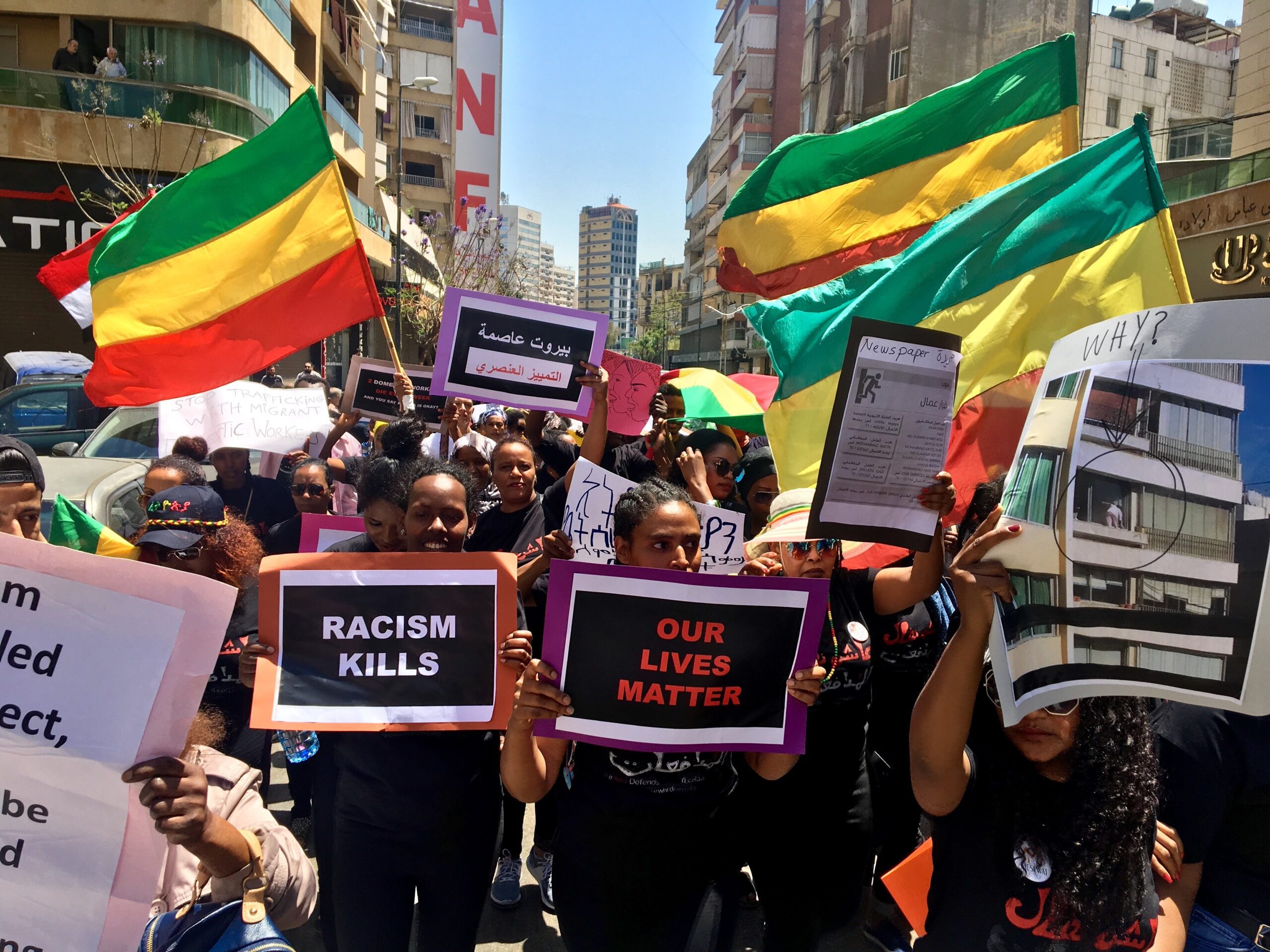Migrant workers took to Badaro street during International Domestic Workers Day on Sunday, June 18 to march in protest of the kafala system. Their banners, chants, and slogans echoed the same as they have for the past few years: Abolish the Kafala system, allow migrant workers the right to work in dignity, and give us our rights.
The kafala system in Lebanon, and the greater MENA (Middle East & North Africa) region, is notorious for being wrought with cruel regulations and human rights abuses. In 2022, Human Rights Watch released an article detailing the abuses migrant workers endure underneath the system.
Some of these abuses include exclusion from the Labour Law, which denies them protections that other workers are entitled to, such as a minimum wage, limits on working hours, a weekly rest day, overtime pay, and freedom of association. In severe cases, the report states that “the high degree of control over workers’ lives under the kafala system has led to cases of human trafficking, forced labour, exploitation, and more.”
In an effort to counter the system and impose their demands on the ruling class, migrant domestic workers have been banding together and forming organizations such as the Anti-Racism Movement and Egna Legna. Through these organizations, they have been able to campaign, rally, march and protest to demand their rights, but authorities have repeatedly failed to abolish the Kafala system.
Despite the repeated demands to abolish the system, the living and working conditions of migrant domestic workers continue to worsen. During the peak of the COVID-19 pandemic in 2020, hundreds of migrant domestic workers were abandoned by their employers on the steps of their countries’ consulates and embassies.
Employers defended this move by saying that they could no longer afford to pay their wages amidst the beginning of the economic collapse and COVID-19 lay-offs, saying “the responsibility lies on the consulate to repatriate them.” Migrant domestic workers were left to camp out for days and weeks at a time, without proper shelter, sanitation, food or water.
When news spread across social media, citizens, organizations and grassroots activists took to aiding them by securing them with food, and shelter. The topic was extensively covered by various media organizations, thus imposing additional pressure on the responsible parties to act.
Many of these workers were later repatriated, but in the years since then, little progress has been made to abolish the system.
Human Rights Watch cites profit has one of the main reasons the system is still in place.
“One study found that the kafala system generates more than 100 million US dollars annually. Recruitment agencies, many of which have been accused of subjecting workers to abuse, forced labour and human trafficking, generate 57.5 million US dollars a year in revenue, according to the same study,” detailed the article.
The report added that these same recruitment agencies are the ones successfully blocking a new standard unified contract for migrant domestic workers “that would have included vital safeguards against forced labour.”
“The top administrative court failed to examine it in line with Lebanon’s obligations under international law, and instead ruled that the contract would cause “severe damage” to the agencies’ interests. Women coming to Lebanon today may find themselves in an even more precarious situation,” it added.
“The Anti-Racism Movement in Lebanon, a grassroots collective that fights discrimination, has found that recruitment agencies are still hiring women from countries like Sri Lanka and Cameroon without informing them about the real situation in the country.”
Until the ruling class is able to provide migrant domestic workers with a reasonable and inclusive labour contract guaranteeing them their rights and protection against harm, protests and marches will continue to take place, with chants and demands sung louder each time.


